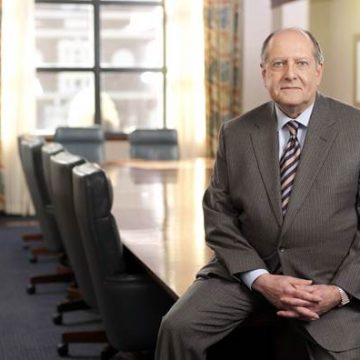Nevin Demmitt and his wife, Vickie, are relatively typical rural Ohioans. They are self-described members of the working middle class from the small town of Mount Victory. Nevin spent the latter part of his working life at Honda in Marysville. Additionally, in addition to his career at Honda and elsewhere, he simultaneously spent most of his adult life running a successful farming operation. Vickie is a bookkeeper in Marysville. Nevin and Vickie made a point of making small gifts to the United Way and hospice over the years, but had never made any sizable charitable contribution.
Like most Americans, the Demmitts had many questions and a number of fears when it came to retirement planning. In addition to many of the issues facing all Americans approaching retirement, Nevin had taken advantage of numerous tax provisions during his farming career and realized that his exit from the farming business could be quite precarious. To answer his questions, Nevin began reading as much as possible about how to optimally time his retirement in order to minimize taxation and best provide for his family. In his own words, Nevin “did a lot of research for three to five years for the end of farming and what problems I would run into. Taxes were going to be a huge issue.” Nevin’s research was kicked into high gear when he learned that the farms he had been leasing were being sold and he “needed something to generate income between age 62 and full Social Security.”
Positioning Your Business for Exit Success
Nevin did not inherit any farmland and was never in a position to purchase land through his farming career. Instead, he always made sure to have top-of-the-line equipment so that when it was time to retire, he could sell the equipment to finance his retirement. Not having any children interested in carrying on the farming operation, Nevin knew his retirement would be the end of the business. “I knew I would be it,” Nevin said, “no one else would farm, so I needed an exit strategy.” In formulating his strategy, his goals were to “create an income stream, lower (his) tax burden, and, since (he) would be the last one farming, to leave some type of legacy.” And that’s where Carlile Patchen and Murphy came in. Geoff Kunkler, a Family Wealth & Estate Planning Group member, is certified as a Chartered Advisor in Philanthropy® and worked with Nevin to create this plan. As Nevin puts it, “the key was finding the right people.” He continued by saying that building a successful plan resulted from “a team effort between Carlile Patchen & Murphy, (his) financial advisor, and representatives from the charities.”
In working with CPM, Nevin has created a charitable remainder trust. His charitable remainder trust is an agreement by which he contributed his equipment and some of his grain to a trust. The trust subsequently sold the grain, auctioned the equipment, and provided Nevin with a set amount (as much as is allowable under current law) each year. The Trust is designed to continue until Nevin’s full retirement age when he will begin taking Social Security to replace this income stream. At the conclusion of the trust, the remaining assets are to be divided amongst charities of his choosing. Right now, conservative estimates predict that over $90,000 will go to charity at the conclusion of the trust, and if the investments perform better than projected, that number will increase. Nevin is currently utilizing public foundations to extend his charitable legacy. He has worked with community foundations to establish a plan so that the charitable impact will not be used up all at once but will carry on in perpetuity. Nevin had no interest in having a section of a building named for him and opted to benefit charities through the creation of endowed funds and also to create scholarship opportunities for students interested in agriculture from his area of the state.
Benefits of Using a Charitable Trust
The charitable trust was utilized for Nevin as the optimal tool to facilitate his retirement plans as it helps to defer taxation. If Nevin were to have sold the grain and equipment without the trust, nearly the entire sale price would have been taxed to him as ordinary income, and a portion would have been further subject to self-employment taxes. In total, he would have been projected to lose approximately 40% of the proceeds to tax. He can defer taxation by letting the tax-exempt charitable trust sell the grain and equipment. As he receives distributions from the trust, those will carry out the tax liability, but by spreading the taxation out over more than a decade, he can reduce the projected tax hit by nearly 20%. “The biggest benefit is the huge tax savings,” Nevin said.
Now that the plan is in place, Nevin said he has no regrets and has described the transaction as a “win-win.”
If you have specific questions about using charitable and philanthropic planning or estate planning in general, you may contact your attorney at Carlile Patchen & Murphy or any member of the Family Wealth & Estate Planning Group for advice.





0 Comments